Fridays
From the Pen of Tonino Guerra
Programmed by Michael Metzger
The history of film is often told through its "great directors," but few minds have shaped the course of cinema so profoundly as that of the Italian poet, novelist and screenwriter Tonino Guerra (1920-2012). Born in a town near Rimini, Guerra began writing poetry for the entertainment of his fellow inmates while imprisoned at a German concentration camp; he went on to three Oscar nominations, major awards at the Cannes and Venice film festivals, and a Jean Renoir Award from the Writers Guild of America. With credits on over 100 films, Guerra was many things to many filmmakers: to Michelangelo Antonioni, he was a "perfect technician of the narrative"; for Theo Angelopoulos, Guerra was "first my friend, then my psychoanalyst, my father, my son and at times a child who needs consoling"; Francesco Rosi once told Guerra, "Tonino, you're practically like my wife!"
Though multifaceted and versatile--his career includes comedies, violent thrillers, literary adaptations, modernist dramas of alienation, science fiction and historical fantasies--Guerra was also a singular voice; Dennis Lim described it as "a questing, poetic sensibility, a hand-in-glove fit for directors who specialized in existential matters and the mysteries of interior life." This series distills the unique voice of Tonino Guerra by surveying his key collaborative partnerships in Italy and beyond, including landmarks of world cinema from four decades of screenwriting.
10/4/2019 @ 7:00 PM & SUNDAY @ 1:30 PM
L'assassino (The Ladykiller of Rome)
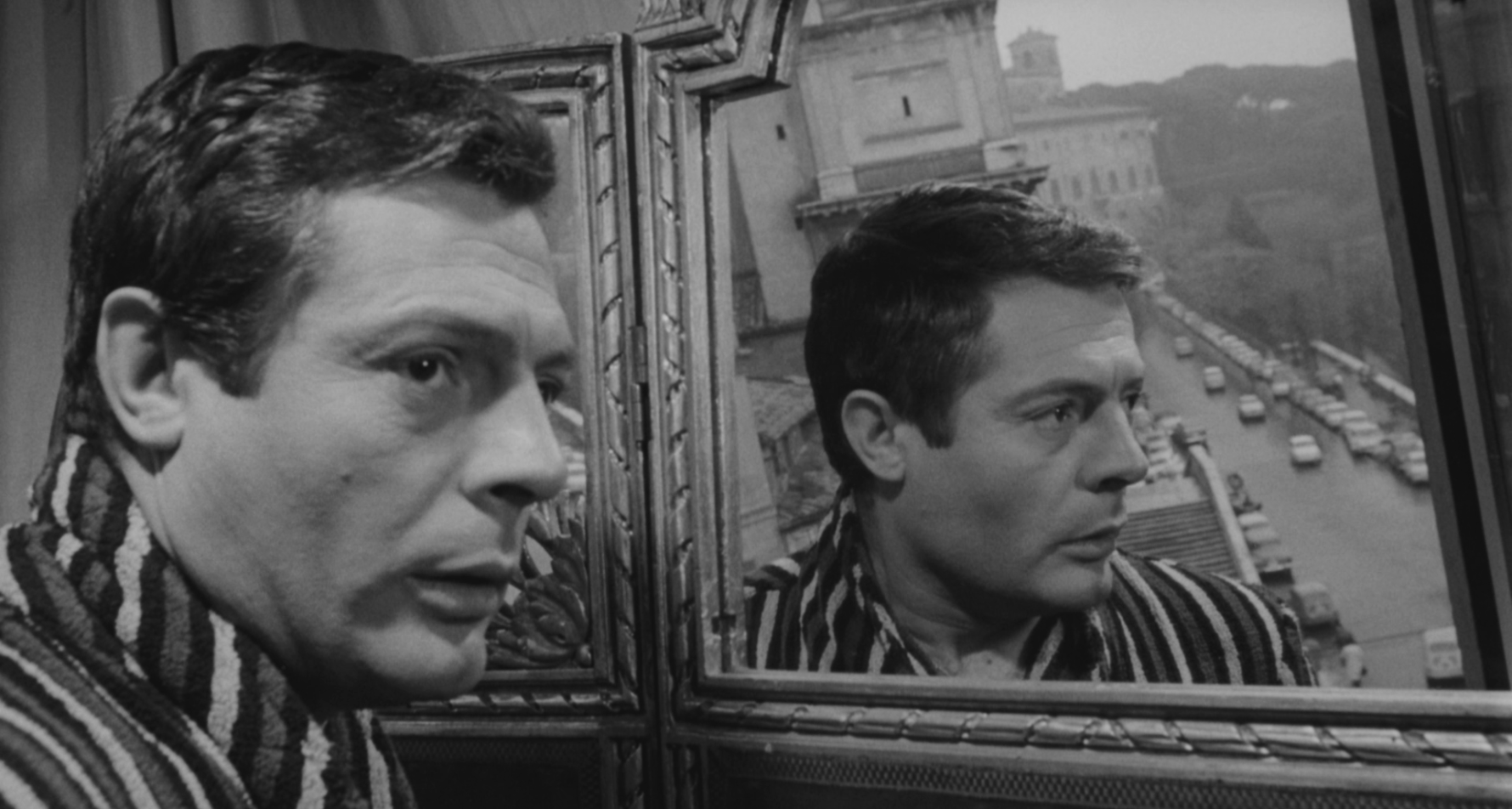
(Elio Petri, 1961) · World premiere of new restoration! A suave, unscrupulous antiques dealer (Marcello Mastroianni, crystallizing his Don Juan persona) comes under suspicion for the murder of his older lover in the debut feature of Elio Petri, the preeminent leftist of post-Neorealist Italian cinema. While Petri's caustic view of bourgeois amorality is clear, the film also represents one of Tonino Guerra's first "existential mysteries", in which the hero's self-investigation is perhaps more damning than that of the police.
runtime: 105m format: DCP
10/13/2019 SUNDAY @ 1:30 PM ONLY
The 10th Victim
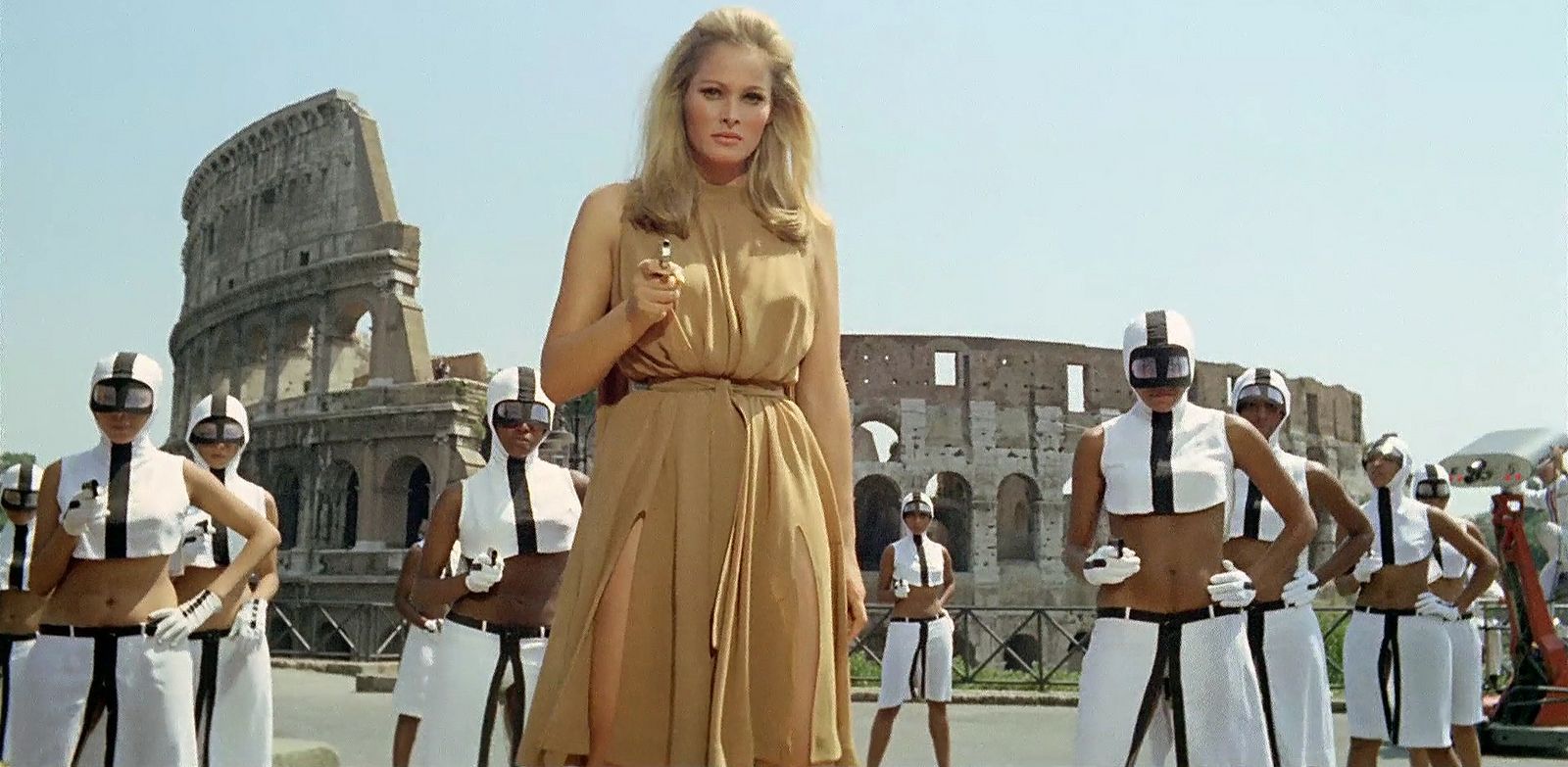
(Elio Petri, 1965) · Modernism goes mod in the third collaboration between Petri and Guerra, an outrageous, scattershot satire of consumerism, mass media, and celebrity culture. Starring Marcello Mastroianni and Ursula Andress as opponents in a broadcast-TV death match, The 10th Victim replaces the psychological depth of Petri and Guerra's other efforts with a plastic, one-dimensional sheen, a giddy reflection of empty Sixties spectacle (which Guerra would further explore, with Michelangelo Antonioni, in Blowup). Print courtesy of Cinecittà Luce
runtime: 92m format: Imported 35mm
10/18/2019 @ 7:00 PM & SUNDAY @ 11:00 AM
Red Desert

(Michelangelo Antonioni, 1964) · The fourth film in a four-decade collaboration, Red Desert finds Guerra and Antonioni at a creative pinnacle. To trace the path of a disturbed woman (Monica Vitti) cast adrift in a polluted landscape, Guerra forges a boldly unconventional narrative structure, allowing ample space for unforgettable color images of industrial decay. Though cited as the director's masterpiece, the film's theme of inner lives reflecting the turmoil of external reality runs throughout Guerra's career.
runtime: 117m format: 35mm
10/25/2019 @ 7:00 PM & SUNDAY @ 1:30 PM
Zabriskie Point
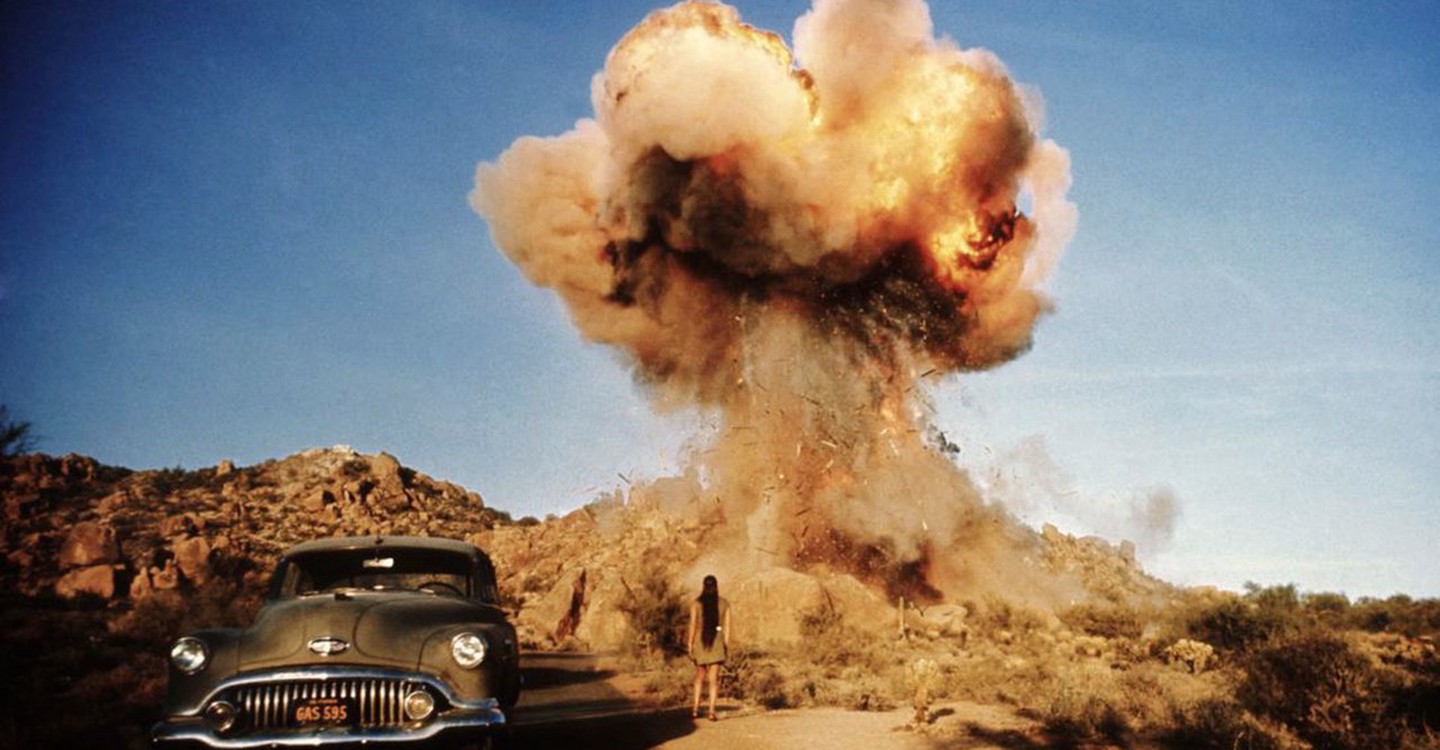
(Michelangelo Antonioni, 1970) · Antonioni's first American film is a disorienting parable of political and sexual liberation, reflecting a sense of unease in the counterculture. Mark Frechette plays a young radical who steals a small plane after fleeing a violent demonstration; Daria Halprin plays the young hippie who encounters him randomly in the California desert. Known for its Cinemascope photography and psychedelic soundtrack, Zabriskie Point also continues Guerra's exploration of cultural and emotional displacement.
runtime: 113m format: 35mm
11/1/2019 @ 7:00 PM & SUNDAY @ 1:30 PM
Illustrious Corpses

(Francesco Rosi, 1976) · Someone is killing judges in Italy, and the establishment wants Inspector Rogas (Lino Ventura) to pin the crimes on an insurgent student movement. Guerra and Rosi adapt Leonardo Sciascia's tale of conspiracy and corruption with a bracing, elliptical style; its stunning locations offer a visual counterpoint to the narrative's imposing architectures of power. This political crime masterpiece shows Guerra's uniquely Italian grasp of the procedural genre, used here to diagnose a society in crisis. Print courtesy of Cinecittà Luce
runtime: 127m format: Imported 35mm
11/8/2019 @ 7:00 PM & SUNDAY @ 1:30 PM
Christ Stopped at Eboli
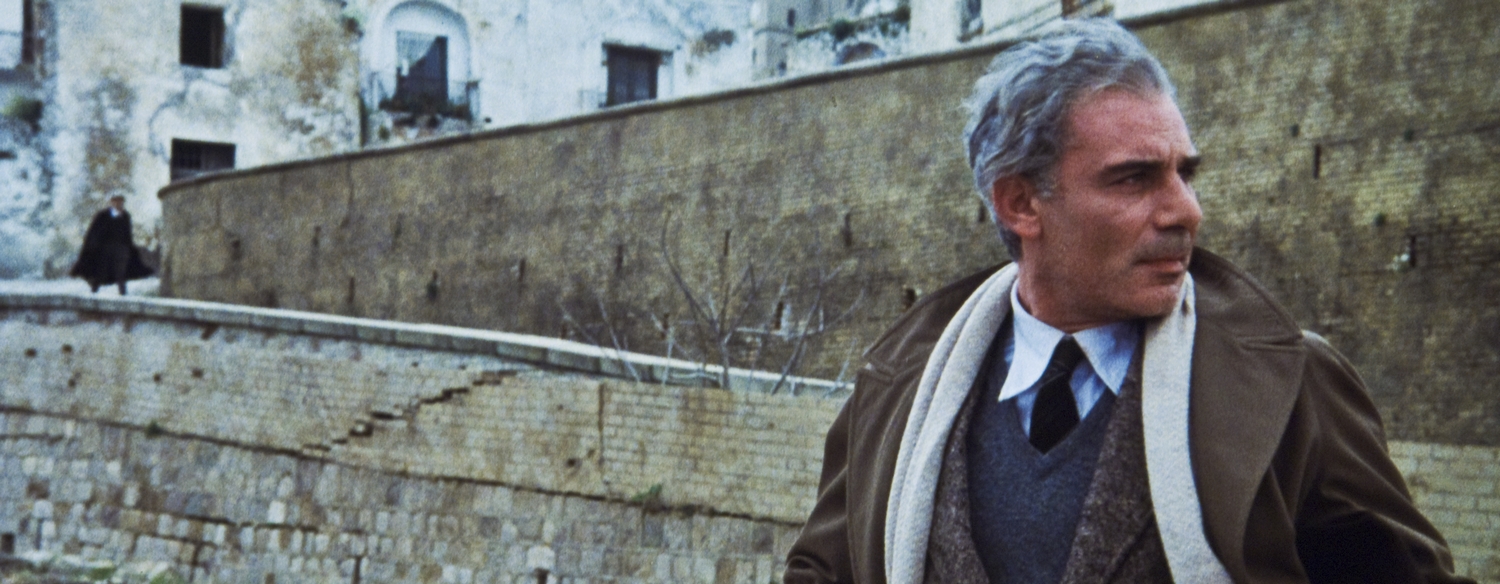
(Francesco Rosi, 1979) · This adaptation of Carlo Levi's wartime memoir, finally released in the US in its original 224-minute form in 2019, is the most expansive, humanistic work of Rosi and Guerra's eleven collaborations. Gian Maria Volonté plays Levi, a dissident doctor sent by the fascist regime to internal exile in southern Italy, where he discovers resilience and resistance among the exploited peasants. The wide canvas generously showcases Guerra's poetic gift for capturing the soul of rural life.
runtime: 220m format: DCP
11/15/2019 @ 7:00 PM & SUNDAY @ 1:30 PM
The Night of the Shooting Stars
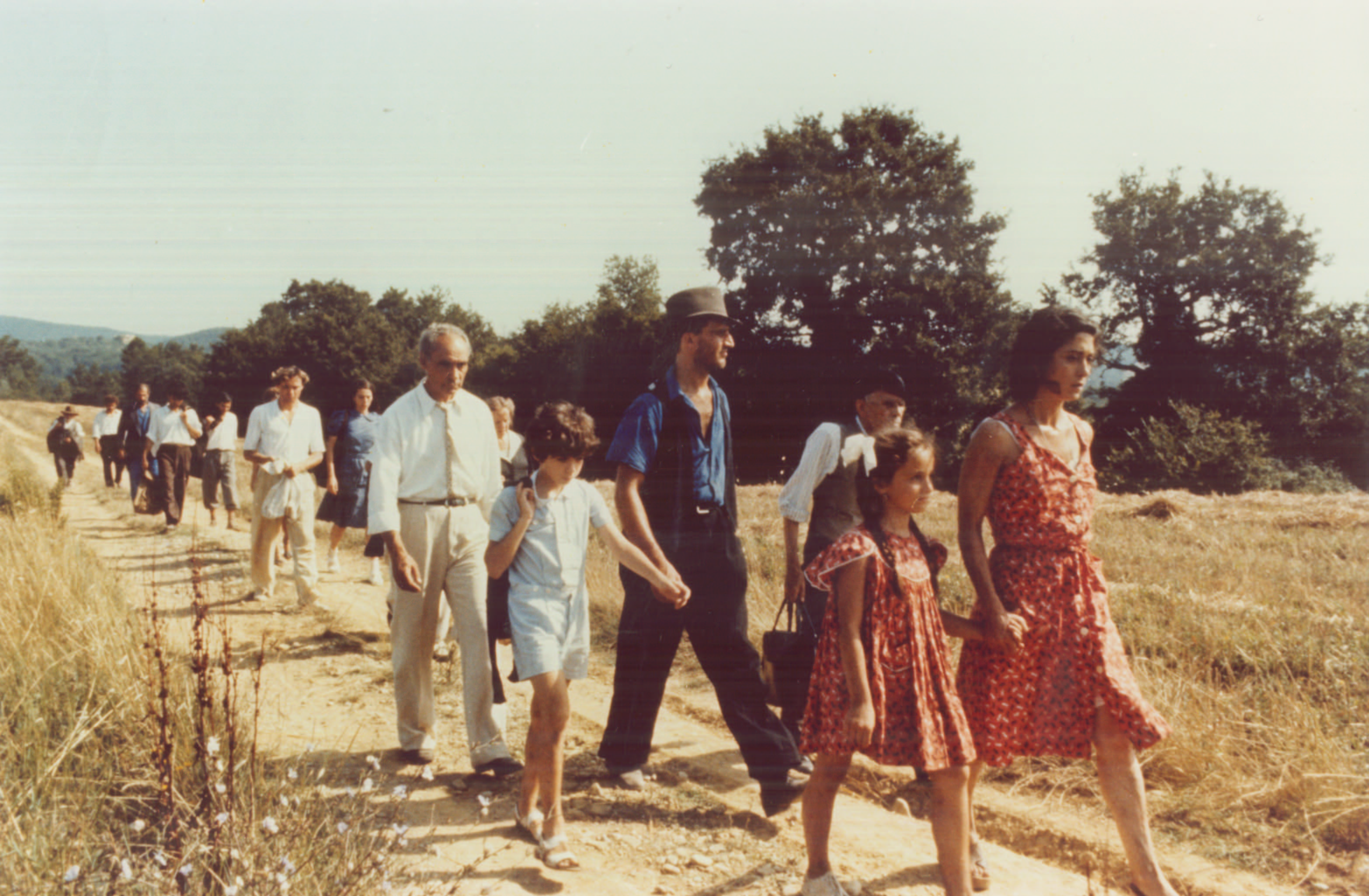
(Paolo Taviani & Vittorio Taviani, 1982) · A mosaic of tragedy, delight, cruelty, and compassion, The Night of the Shooting Stars takes place in a Tuscan village during the summer of 1944, when rumors of both Allied liberation and Nazi devastation swirled violently. A group of villagers, played in neo-realist style by a largely non-professional cast, set out under cover of night to greet the approaching American forces, but the events that ensue play out less like a docudrama than a vivid mixture of dream and testimony.
runtime: 107m format: DCP
11/22/2019 @ 7:00 PM ONLY
The Suspended Step of the Stork
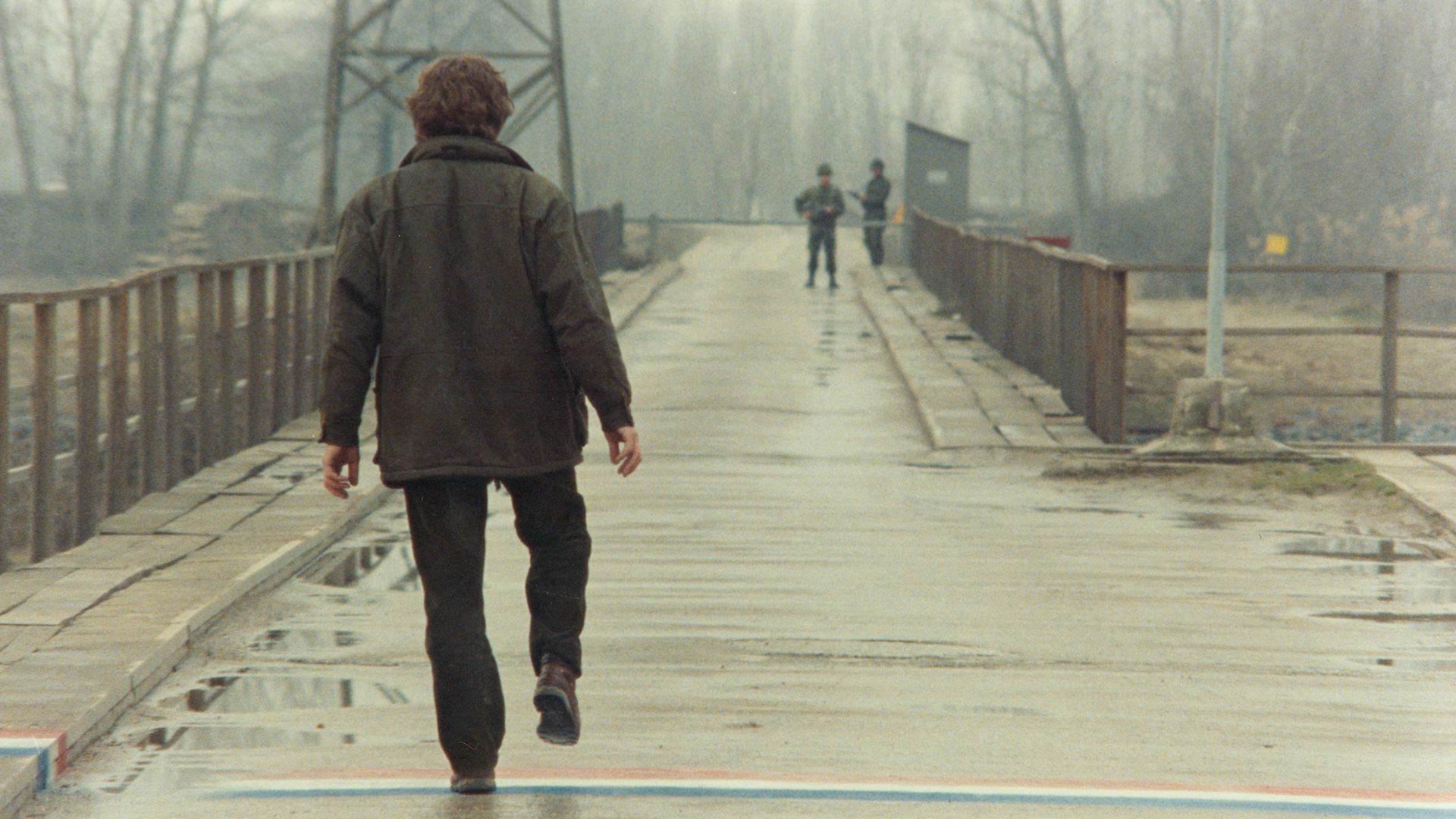
(Theo Angelopoulos, 1991) · Tonino Guerra's two-decade partnership with Greek long-take auteur Theo Angelopoulos was his longest and most fruitful outside Italy. This moody drama, about a documentary filmmaker who believes he has discovered a missing politician in a refugee camp, finds Guerra returning to the themes of displacement, technological mediation, and ambiguity that marked his work with Antonioni in the 1960s. Though rarely screened, the film's inquiry into migration and political disillusionment remains timely.
runtime: 143m format: 35mm
12/6/2019 @ 7:00 PM & SUNDAY @ 1:30 PM
Landscape in the Mist
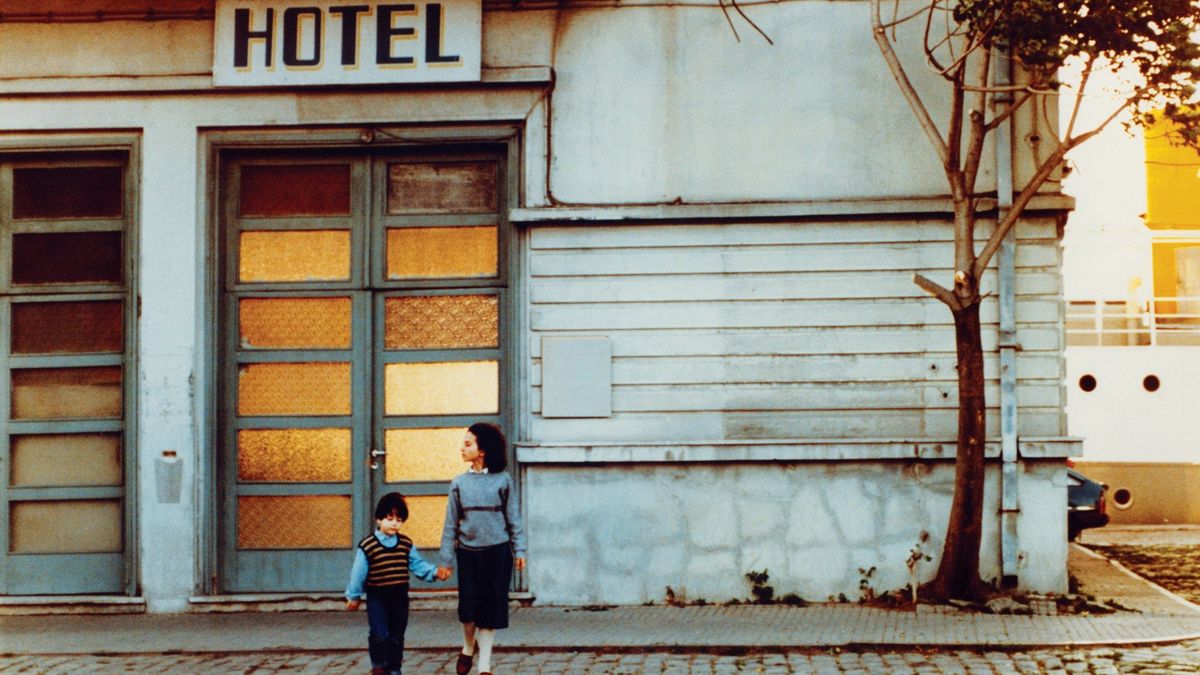
(Theo Angelopoulos, 1988) ·
runtime: 127m format: 35mm



